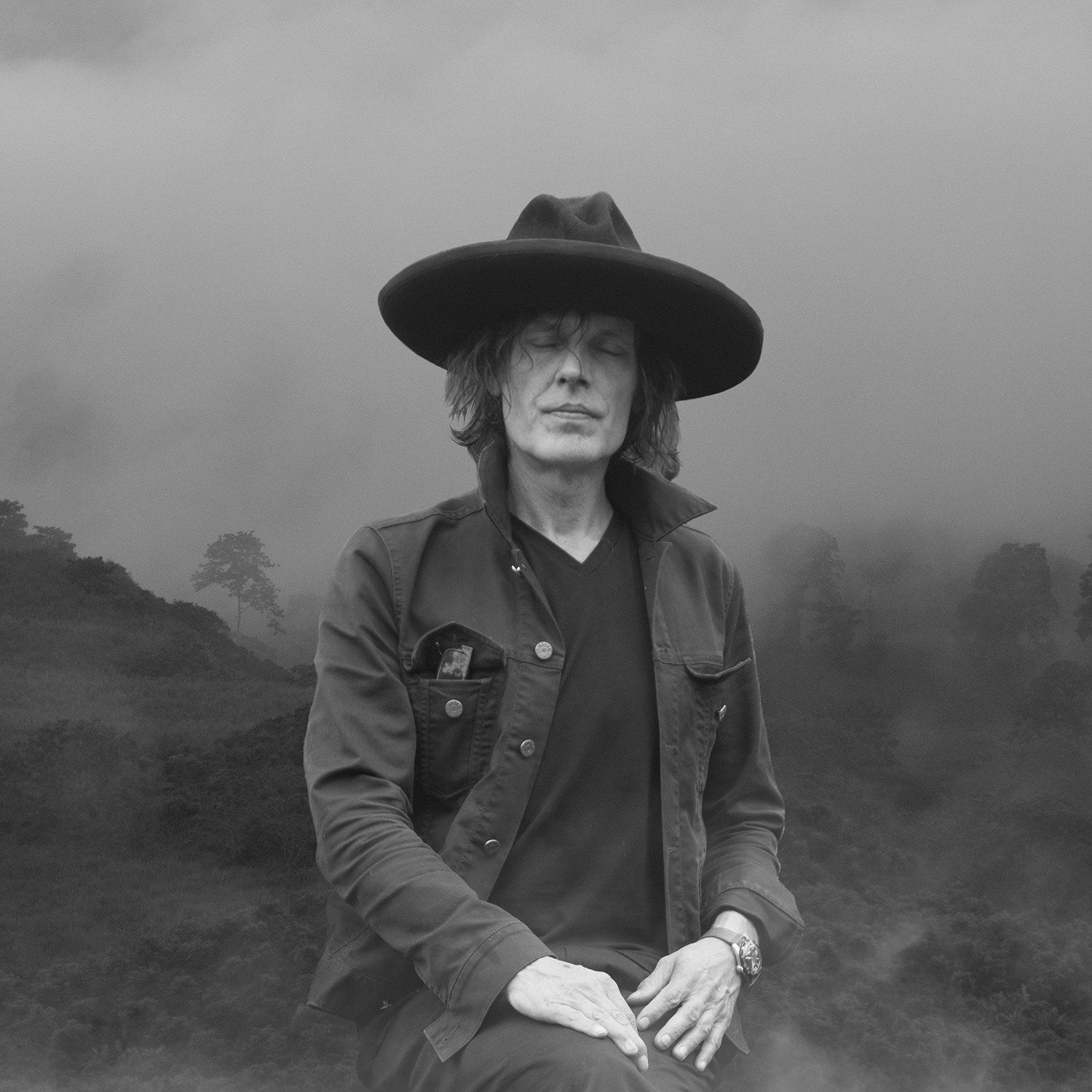Biography
Born in Québec City in 1961, Jean Leclerc, a.k.a. Jean Leloup, was banned from his daycare centre for disgracing French-Canadian culture in ’64, and exiled to Africa. Back in Canada, and faced with depression in the Grey-White North, he discovered Art. In ’78, he decided to become a painter, then a writer. After seeing a picture of Jim Morrison, he finally settled on songwriting. Jean "Leloup" was born, a rebel singer from Quebec, wearing top hat and pointed boots, seventies class suits. From 1986 to 2003, Leloup is consecrated! Adulated! Loved, hated! Listen ! City! After thirteen years of success, the media are informed that the character Leloup will symbolically die at the end of his tour by burning his favorite guitar and sending him to disappear along the Yamaska River on a makeshift raft. Leloup is dead. Some time later, "Mexico", the perfect album of the Dead, was finally completed. Leloup is dead. Long live the Dead. Jean Leclerc resuscitated his alter ego Jean Leloup in 2009 for the album "Mille excuses Milady". After a tour of festivals and months of traveling, he did it again in 2015 with "À Paradis City", an album highly acclaimed by critics and warmly received by his admirers. Then in 2019, Jean Leloup returned to the most basic on "L’étrange pays", an album of brand new compositions in guitar and voice format, recorded outside, on a Montreal balcony or elsewhere.
Born in Québec City in 1961, Jean Leclerc, a.k.a. Jean Leloup, was banned from his daycare centre for disgracing French-Canadian culture in ’64, and exiled to Africa. Back in Canada, and faced with depression in the Grey-White North, he discovered Art. In ’78, he decided to become a painter, then a writer. After seeing a picture of Jim Morrison, he finally settled on songwriting. In 1983, he made his debut as a participant at the Festival international de la chanson de Granby. He took home the first prize.
In 1989, he released his first full-length album, Menteur. Over a soundtrack combining the mechanical sounds of the late ’80s, hip-swinging folk, and exotic grooves, the born storyteller conjured up memories and moments in his love life. Success was in the cards from the get-go. Three of the album’s tracks became timeless classics: “Laura,” “Printemps-Été” and “Alger.” Expected to perform in support of the record, Jean decided to take a trip instead. He brought back a top hat and a rock band called La sale affaire, with whom he wrote songs and presented a new album on stage, L’amour est sans pitié.
A year later, the single “1990” was played on all the radio stations. In France, it made its way into the Top 5 and was a hit with both radio stations and nightclubs. 75 000 people attended the singer-songwriter’s live show at Les Francofolies de La Rochelle. But Jean Leloup isn’t big on crowds. Preferring to write, he stepped out of the public eye to dedicate himself to his craft. In 1996, he offered Le Dôme, which became a cult classic. All of the album’s tracks made it into the charts, earning Leloup his first Félix award for Singer-Songwriter of the Year.
After Le Dôme, the artist immediately travelled to Africa, which inspired him to write Les Fourmis. The new opus became yet another landmark in Quebec’s music history, earning Jean Leloup no less than five Félix awards, including for Rock Album of the Year, Singer-Songwriter of the Year, and Show of the Year.
In the early 2000s, he founded his own record label, Roi Ponpon, and travelled far and frequently, in search of inspiration. He made a comeback in 2003 with La Vallée des réputations, a more intimate folk album, which also went platinum. The first 50 000 copies sold in only 2 days!
And then came the big shocker. Tired of his image, Leloup burned his guitar in a hard-hitting documentary titled Exit and became Jean Leclerc. He spent the next few years living out of the showbiz spotlight.
In 2006, he publicly returned to music with Mexico, a stripped-down, edgy album where he took everything in his own hands and played all the instruments. This afforded him the opportunity to create an album with a high level of artistic coherence, free from the expectations of fans and critics towards the “departed Leloup.” Mexico won the Félix award for Alternative Album of the Year.
Released in 2009, Mille excuses Milady won the Félix award for Rock Album of the Year. Once again, the recording led to radio success: the single “La plus belle fille de la prison” made its mark in the Quebec charts. In the summer of 2012, Leloup offered his fans a gigantic and highly unexpected surprise: he embarked on a festival tour dubbed La Nuit des confettis, where he played all of his greatest hits. The tour drew over 75 000 people to the Plains of Abraham in Québec City. In Montreal, he attracted the largest crowd ever recorded on the Place des Festivals, in the Quartier des spectacles.
He returned in 2015 with À Paradis City, an album that was greeted with high praise from both critics and his loyal fan base. The record went platinum in less than a year and has now sold more than 120 000 copies. It also received the Félix awards for Male Performer of the Year, Song of the Year for “À Paradis City,” Album of the Year—Critic’s Choice, Singer-Songwriter of the Year, and Rock Album of the Year. À Paradis City was also recognized in the anglophone world, earning a JUNO Award for Francophone Album of the Year.
Following the massive success of this album, Leloup returned to the stage with not one, but two different live shows. The first one, titled Jean Leloup et son orchestre en concert à Paradis City, filled the Métropolis in Montreal and the Grand Théâtre de Québec over twenty times, making Jean Leloup the artist who performed the most at the Métropolis since its foundation. His second concert, Le fantôme de Paradis City, found the artist performing solo with his guitar for the very first time. His efforts were met with critical acclaim and led to Félix awards for Show of the Year, Singer-Songwriter of the Year, and Stage Designer of the Year. Then, in 2019, Jean Leloup went back to basics with L’étrange pays, an album of new compositions for guitar and voice, recorded outside, on a Montreal balcony, and elsewhere. Fans and critics were delighted.
A natural iconoclast, Jean Leloup may have attracted much media attention over the years for his unpredictable antics, but none of that can overshadow his bold, artistic vision, which has allowed him to sell nearly 900 000 albums and become one of Quebec’s greatest music icons.

